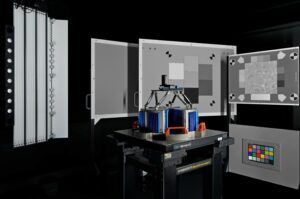
Year after year, the demand for ever-better smartphone photos continues to grow, in particular in the domain of portrait photography. Manufacturers thus use perceptual quality criteria throughout the development of smartphone cameras. This costly procedure can be partially replaced by automated learning-based methods for image quality assessment (IQA). Due to its subjective nature, it is necessary to estimate and guarantee the consistency of the IQA process, a characteristic lacking in the mean opinion scores (MOS) widely used for crowdsourcing IQA. In addition, existing blind IQA (BIQA) datasets pay little attention to the difficulty of cross-content assessment, which may degrade the quality of annotations.
DXOMARK introduces PIQ23, a portrait-specific IQA dataset of 5116 images of predefined scenes acquired by 100 smartphones, covering a high variety of brands, models, and use cases. The dataset features persons from a wide range of ages, genders, and ethnicities who have given explicit and informed consent for their photographs to be used in public research. It is annotated by pairwise comparisons (PWC) collected from over 30 image quality experts for three image attributes: face detail preservation, face target exposure, and overall image quality.

 DSLR & Mirrorless
DSLR & Mirrorless  3D Camera
3D Camera  Drone & Action camera
Drone & Action camera 
